Friday, April 30, 2021, 07:40 PM / byTheAnalyst, Proshare Research / Header Image Credit: EcoGraphics
Withthe recent decision of the Central Bank of Nigeria (CBN) to remove the Boardsof FBNHoldings and FirstBank and replace them withnewly constituted alternatives, several issues creep behind the facade offinicky corporate ethics. The banking windowpanes appear clear behind dustyoperational curtains. The revelation by Nigeria's Central Bank Governor, Mr.Godwin Emefiele, that FirstBank had been under a regime of forbearance since 2016and was peppered with problems of recovering insider-related loans was anadmission of regulatory fogginess. Indeed, bank analysts have noted that thiswas one of the clearest examples of what industry professionals call 'adverse selection' or a situationwhere assistance or preference is given to the least qualified person orinstitution based on sentiments rather than evidence-based governance andlogic, especially where, for example, a regulator like the CBN has moreinformation than investors, depositors and the general public.
Emefiele in his announcementconcerning the dissolution of the Boards of FBNHoldings (FBNH) and FirstBank on Thursday 29 April 2021, noted that "As you may be aware, FirstBank is one of the systemically important banks in theNigerian banking sector given its historical significance, balance sheet size,large customer base and high level of interconnectednesswith other financial service providers, amongst others. By our last assessment,FirstBank has over 31m customers, with deposit base of N4.2trn, shareholdersfunds of N618bn and NIBSS instant payment (NIP) processing capacity of 22% ofthe industry. To us at the CBN, not only is it imperative to protect theminority shareholders, that have no voice to air their views, also important,is the protection of the over 31m customers of the bank who see FBN as a safehaven for their hard-earned savings.
Thebank maintained healthy operations up until 2016 financial year when the CBN'starget examination revealed that the bank was in grave financial condition withits capital adequacy ratio (CAR) and non-performing loans ratio (NPL)substantially breaching acceptable prudential standards."
The CBN Governor continued byobserving that "The problems at the bank were attributed to bad creditdecisions, significant and non-performing insider loans and poor corporategovernance practices. The shareholders of the bank and FBN Holding Plc alsolacked the capacity to recapitalize the bank to minimum requirements. Thisconclusions arose from various entreaties by the CBN to them to recapitalize".
According to Emefiele "The insiderswho took loans in the bank, with controlling influence on the board ofdirectors, failed to adhere to the terms for the restructuring of their creditfacilities which contributed to the poor financial state of the bank. The CBN'srecent target examination as at December 31, 2020 revealed that insider loanswere materially non-compliant with restructure terms (e.g. non perfection oflien on shares/collateral arrangements) for over 3 years despite severalregulatory reminders. The bank has not also divested its non-permissibleholdings in non-financial entities in line with regulatory directives"
Read: CBNGovernor's Statement on the Purported Management Changeat the First Bank of Nigeria Ltd
Thiswas consistent with the concerns of Debtors Africa as far back as 2019 when in a reportprepared for the organization by Proshare it was noted that the old paradigm of 'naming' and 'shaming' delinquent debtors into repaying loans was ineffectivenoting that it would be difficult to shame the 'shameless' particularly in anenvironment where the perception of wealth was more important than thesubstance of character.
TheCBN Governor pointed to the fact that the regulator had over the past fiveyears been watching FirstBank with an eye on re-establishing sustainablebusiness growth and resolution of sticky loan assets. Indeed, the Governorpointed out that the regulator had extended forbearance to FirstBank since 2016when it approved the appointment of Dr. Adesola Adedutan to succeed the bank'serstwhile Managing Director, Mr. Bisi Onasanya.
Ingranting forbearance to FirstBank, the Governor noted that before major boarddecisions such as replacement of directors was taken the board would have ofnecessity had to engage in a discussion with the regulator to ensure a smoothtransition and the sustenance of the bank stability objective. This was notdone and the backroom manouverings of core shareholders of the bank thatdoubled as senior board members made the act of replacing FirstBank's ManagingDirector who still had eight months left in his five-year tenor unacceptable tothe regulator, especially since the regulator felt comfortable with the balancesheet turnaround supervised by the management team led by the Chief ExecutiveOfficer (CEO).
Headaches
WhileEmefiele's swift action to remove the Boards of FBNH and FirstBank wasunderstandable, it threw up issues that run deeper than the simple substitutionof personnel and speaks to the heart of the stability and integrity ofNigeria's financial system.
Forbearance
Inthe Governor's speech, the regulator mentioned that FirstBank had enjoyedfinancial forbearance from the CBN for five years since 2016. Analysts thathave reviewed the Audited Annual Accounts of the bank have noted that the CBNforbearance programme was not disclosed anywhere in the bank's accounts overthe past five years. By not mentioning this material fact that it wasunder regulatory forbearance, the bank had misled the financial market ingeneral, and the stock market about its state of financial health, therebyresulting in a situation where its traded share price on the floor of theNigerian Exchange Group (NGX) did not reflect the bank's intrinsic value.This was a breach of best global governance practice which created a problemeconomists refer to as an 'asymmetric information' or information failure' problem where one set of investors havesuperior knowledge of the state of financial health of a listed company thananother set of investors or where a bank's insiders (management and directors)know more about the financial status of an institution than its owners orshareholders.
WhileFirstBank's Board members knew about the CBN's forbearance programme, investorsin the bank's holding company (FBNH) were pretty much in the dark. This throwsa crooked wrench in the CBN's Governors statement of initiating the removalaction against the FBNH Board to protect FirstBank depositors and shareholdersfrom loss because of failed corporate governance. The fact that neither theFBNH Board nor the CBN management deemed it necessary to inform the investingpublic of the fiscal affairs of the bank with both parties remaining silentover the forbearance granted FirstBank by the regulator over the lasthalf-decade throws any argument of a moral or professional high ground of theregulator under the bus. The conspiracy of silence in not providing materialinformation related to a company quoted on the NGX could be seen as a breach ofmarket integrity and fidelity.
OfCooks and Broths
Theirony here is that FirstBank is known to be the clearing bank to other bankspresently under the CBN's forbearance arrangement. These banks have presentednoticeably negative shareholder funds in their 2020 financial statements withthese funds being negative north of N250bn and even where shareholder's fundshave turned up positive, the banks' statement of financial positions (balancesheets) represent artful accounting aerobics in which negative equity is turnedpositive by introducing misty accounting practices such as 'share premiumaccounts' into the books of entities that are neither listed on a publicexchange (to determine actual market price) or produce regular statements ofintrinsic value based on globally accepted accounting guidelines (IFRS andGAAP).
TheFirstBank matter goes well beyond the mere underhand removal of a bank ManagingDirector by an allegedly compromised board and a heavy-handed dominantshareholder, and raises questions as to how far the public can trust theintegrity and representation of the annual financial statements of banksmonitored by the CBN. For example, how do banks with serial negativeshareholder's funds (in other words they have no share capital) continue tooperate in a properly governed financial system? With respect to FirstBank, howdoes a bank under forbearance provide clearing house functions to other banksunder forbearance? Is this a case of the blind man lending his legs to thelame? Why are the forbearance statuses of banks listed on the NGX not madepublic to guide rating agencies, investors, and other prospective creditors ofthe institution on a fair value assessment of a bank's assets and liabilities?
WhileEmefiele and the CBN's management may have done the financial system a world ofgood by preventing a powerful insider from short-circuiting a carefullyorchestrated process of supporting the resurgence of the fortunes of FirstBank,in doing so, the CBN has also demonstrated a willingness to bend too farbackwards in allowing insider transactions in banks to unravel before applyingthe needed cudgel. The CBN's indulgence permits deposit money institutions tocarry large and dubious risk assets on their loan books for extended periodswithout the appropriate levels of impairment provisions thereby overstatingbank earnings and understating their non-performing loans (NPLs).
Thealleged tolerance of the banking sector regulator may have created distortionsin the market price discovery process of the NGX, where many banks may bediscovered to be worth much less than their most recent market prices.
Thesupposed clever cooking of financial statements by banks may have begun to givea foul odour as the FirstBank Board problem exposes a need for a new approachto both insider and outsider loan management processes and a review of theCBN's overall bank intervention strategy.
PrincesDo Not Fight as Slaves
TheBoard replacement at FBNH and FirstBank may have been expedient but may nothave required public drama. In dropping the gauntlet by both the former Boardmembers of FBNH and the CBN, the Nigerian banking system has become morefragile as elements of doubt concerning the professionalism and integrity ofthe system comes into consideration by both foreign and local observers.
Thedustup between the erstwhile Chairman of FBNH, Oba Otudeko, on the one hand,and the Governor of the CBN, Mr. Godwin Emefiele, on the other has left bothgentlemen badly bruised. The CBN governor's matured request for a meeting withOtudeko and his pursuit of a conversation within the time worn best practice ofbackdoor conversation was commendable, but his emotional response to Otudeko'salleged rebuff was unnecessary. Otudeko himself breached the codes of theIjebu, from the Southwestern part of the country who sing songs that suggestthat a prince does not fight battles like a slave (seeillustration below).
Illustration FirstBank; the 28 April2021 Decision Matrix
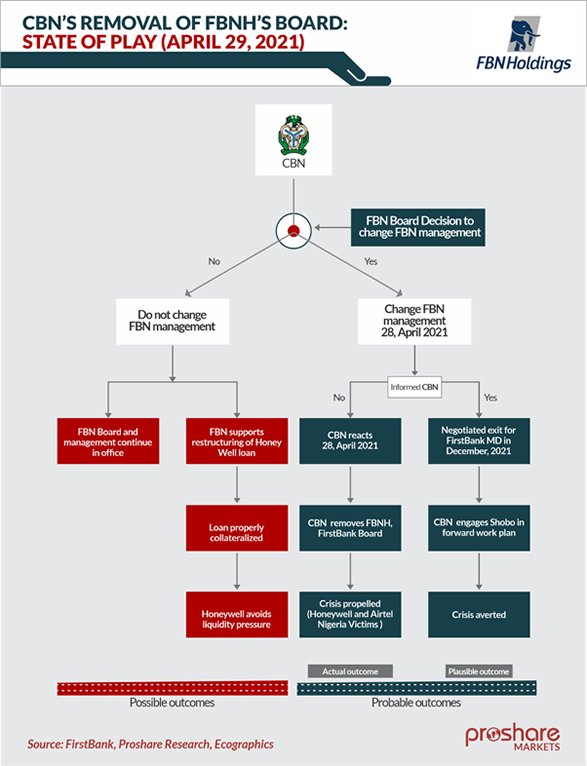
Insorting out the various conflicted positions Otudeko could have adopted a lessbelligerent approach to making his point and establishing the reason for achange of guards at the bank. Clawing at quicksand is not the best way ofcoming out of the mud. From the perspective of governance oversight the CBN mayhave wrongly overplayed its hand by showing preference at a time emotions werehigh and alternative solutions may have been explored. Otudeko may have beenguilty of the same mood swing and emotional reaction to a tense situation. Inthe battle of egos nobody wins, and most things are lost. The CBN may urgentlyneed to reassure Nigerians and foreign investors and bank customers that theFirstBank saga was an aberration rather than an unfolding rule and that goingforward the regulator would put a tighter rein on insider transactions and holddirectors to the highest standards of Board governance practice.
The New Way, the Superior Way
AtAccess Bank'srecent 32nd Annual General Meeting (AGM), the banks ManagingDirector, Mr. Herbert Wigwe, decried the incidence of powerful and influentialNigerians taking loans from banks with no intention to repay. While he admittedthat there were a few Nigerian business persons with strong governance codes,he nevertheless, suggested that most supposedly wealthy and successful Nigerianbusiness persons were repeated loan defaulters some of whom had the capacitybut lacked the willingness to repay loans collected from banks for businesspurposes.
Thispoint was highlighted in the 2019Report of Debtors Africa where it was noted that "The poorrepayment culture of large debtors who tend to prove more recalcitrant thantheir smaller counterparts has given birth to a burgeoning debt factoring andloan repurchase business. To be sure, analysts have argued that private debtfactors and loan purchasers are the natural successors to the AMCON after thecompletion of its sunset period scheduled for June 2020. The opinion of somereviewers of the local loan industry landscape is that the application ofprivate, incentive-based recovery models would prove more effective than theAMCON-supervised arrangement that still has to resolve N5trn of outstandingbank assets".
AMCONis not likely to rollup anytime soon as the sunset clause referred to in thereport was based on a template of recovery expectations and was not necessarilypart of the statute setting up AMCON as an asset resolution institution.However, with the unfolding FirstBank story playing up the need for strongerloan recovery oversight a needfor a new approach to lending based on digital intelligence has becomepressing.
NPLsand Other Issues
TheAnalyst in the NPLs & Bad Debtors section of the 2019 DebtorsAfricaReport estimated a rise in NPLs of Nigerian banks as aresult of economic downturns caused by the novel coronavirus which had a severeimpact on businesses especially the oil & gas (O&G) sector. As crudeoil prices tanked in 2020, most banks highly exposed to the O&G sector werehit especially in the Q2 and Q3 financial period of the institutions.
However,the FY2020 result of most listed banks played a different tune in NPLperformances. Although, Fidelity Bank and Stanbic IBTC both recorded growth inNPL ratio as expected by ThAnalyst.
UnionBank had the highest Y-o-Y percentage decline in NPL, from 5.80% in 2019 to4.0% in 2020. Union bank's FY2020 result shows retail accounted for 29% of thetotal NPL of the bank. Also, the NPL of the O&G sector increasedsignificantly in 2020, accounting for 4% in 2019 to 25% of NPL in 2020.
Fidelitybank recorded the highest Y-o-Y percentage growth of +15.15%in its NPL ratio in 2020 when compared to its peers. According to its financialstatement, the Transport sector accounted for the highest percentage in NPLratio with 31.2%. The NPL ratio of the O&G downstream sub-sector declinednotably in 2020, from 35.3% in 2019 to 6.7% in 2020 (see table below).
Table 1: Percentage Change inBank's NPL Ratio
| Banks | 2020 | 2019 | % Change |
| Access | 4.30% | 5.80% | -25.86% |
| ETI | 7.60% | 9.70% | -21.65% |
| FCMB | 3.30% | 3.70% | -10.81% |
| GTB | 6.39% | 6.53% | -2.14% |
| Stanbic IBTC | 4.00% | 3.90% | +2.56% |
| Sterling | 1.90% | 2.20% | -13.64% |
| Union | 4.00% | 5.80% | -31.03% |
| Unity | 0.001% | - | - |
| Zenith | 4.29% | 4.30% | -0.23% |
| Fidelity | 3.80% | 3.30% | +15.15% |
| UBA | 4.70% | 5.30% | -11.32% |
| FBNH | 7.70% | 9.90% | -22.22% |
Source:Bank Financial Statement, Proshare Research
Between2019 and 2020, FBNH and ETI both had high NPL ratios above the CBN's 5%threshold.
Abreakdown of First Bank of Nigeria Limited NPL ratio shows that theAgricultural sector accounted for 16.9% of the Company's total NPL in 2020,while the O&G sector (upstream, services, and downstream) accounted for15.2% of NPL by sector.
Unitybank appears to have the strongest NPL index against its listed counterparts in2020, with an NPL near zero (see chart below).
Chart 1: Bank's NPL Ratio 2019& 2020
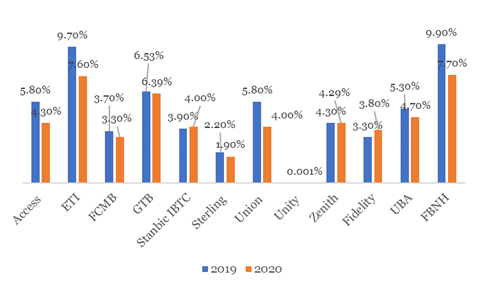
Source:Bank Financial Statement, Proshare Research
Views from the Upper Room
Asthe FirstBank tale rages with decreasing loudness, the financial system mustreset and address a few compelling issues:
- The powers and responsibilities of significant insider interests in banks must be scaled down to avoid boardroom brawls amongst blocs of larger investors to the detriment of minority interests
- The level of independence of bank boards in the light of large bloc shareholder influence must be ascertained.
- The loan recovery framework within banks must be regularly subjected to stress tests.
- The use of technology as a tool for monitoring, recalibrating, and initiating the loan recovery process must be explored expeditiously e.g., the maintenance of a digital register of recalcitrant and delinquent lenders such as DebtorsAfrica, with archival and retrieval features including records of the nature and amount of a loan facility outstanding and the attached collateral assets.
- The issue of making public the forbearance status of banks. While exact amounts and details of the forbearance programme may be held confidential between the regulator and the bank, the fact of forbearance should be included in the annual financial statements of lending institutions, especially those listed on an organized exchange such as the NGX, FMDQ and NASD.
- The Exchange on noting that banks listed on its Exchange have forbearance arrangements with the CBN must seek and obtain clarity on the nature of the forbearance and place the stocks of banks in this category on technical suspension until the matter has been resolved in the interest of minority and other shareholders
- The Securities and Exchange Commission should liaise with the CBN over the material nature of the forbearance of banks listed on public Exchanges and must seek notification of material changes to the conditions of such banks
- Banks with negative shareholders capital should have their stocks placed on technical suspension until a reversal of the adverse condition of their balance sheets has been established.
- Corporate governance must be at the centre of regulatory consideration going forward and the bad behaviour of insider borrowers should receive less tolerance as bank directors navigate past avoidable Boardroom scuffles.
Watch Video
Related News - NPLs and Banks
- NPL and Bad Debtors - The Case for a New Industry Approach - Download the Full PDF Report - Debtors Africa, May 13, 2020
- NPL and Bad Debtors - The Case for a New Industry Approach - Executive Summary PDF - Proshare, May 14, 2020
- AMCON and Financial Services Debt Burden in Nigeria - Aug 17, 2018
- Bank NPLs (25) - The Customer's Options in a New Debt Order
- Bank NPLs (24) - Handling Bad, Delinquent and Recalcitrant Debtors via DiMR
- Bank NPLs (23) - The Case for a New Approach
- Bank NPLs (22) - Benchmarking Best Practice and International Debtors List
- Bank NPLs (21) - The Role and Place of Credit Bureaus and Rating Agencies in Recovery Efforts
- Bank NPLs (20) - A New Cottage Industry Emerges - Debt Factors and Loan Purchase Firms
- Bank NPLs (19) - Issues Around Nigerian Bank Debtors List
- Bank NPLs (18) - Understanding The Impact Of IFRS 9 On Selected Nigerian Banks
- Bank NPLs (17) - IFRS and Accounting Standards
- Bank NPLs (16) - The Place of Arbitration, Resolution or Debt Management
- Bank NPLs (15) - AMCON and Its Role in Debt Recovery
- Bank NPLs (14) - Regulatory Guidance, Conduct and Enablers
- Bank NPLs (13) - Impact on Growth of the Credit Market
- Bank NPLs (12) - Impact of NPLs on Income Trends
- Bank NPLs (11) - Technical Analysis on Banks' NPLs - LDR
- Bank NPLs (10) - Technical Analysis on Banks' NPLs - Leverage Ratio
- Bank NPLs (9) - Technical Analysis on Banks' NPLs - Liquidity Ratio
- Bank NPLs (8) - Technical Analysis on Banks' NPLs - NPL Ratio
- Bank NPLs (7) - Technical Analysis on Banks' NPLs - Profitability
- Debtors Africa: AMCON; Chike-Obi's Alternative View
- Bank NPLs (6) - Technical Analysis on Banks' NPLs - Gross Earnings
- Bank NPLs (5) - How Banks Fared In 2018; Holding Up Against IFRS9 Tropical Winds
- Bank NPLs (4) - A Short History of Recovery Efforts - A Time Series Analysis
- Bank NPLs (3) - The State of NPLs
- Debtors Africa Launches Searchable Digital Database of Recalcitrant and Delinquent Debtors
- Value of Downgraded Sovereign Debt Not as High as Previous Crises
- Bank NPLs (2) - The Banking Industry and Its NPL Position
- Bank NPLs (DR 1) - The Case for a New Industry Approach
Related News
- FBN Holdings Writes NGX on Recent Developments in First Bank and FBN HoldCo
- CBN Removes Boards of First Bank of Nigeria, FBN Holdings; Appoints New Chairmen
- PDF: CBN Scope, Conditions And Minimum Standards For Commercial Banks Regulations NO. 01, 2010
- PDF: Guidelines For Licensing And Regulation Of Financial Holding Companies In Nigeria
- PDF: CBN Governor?óÔé¼Ôäós Statement on the Purported Management Change at the First Bank of Nigeria Ltd
- FBNH Appoints Mr. Gbenga Shobo as Managing Director Alongside New Executive Directors
- FirstBank's New Board Appointments, CBN Reacts
- FBN's Change of Guards; Adeduntan Passes Baton to Shobo
- FBNH Announces The Appointment of Alhaji Yakubu Wanka As A Non-Executive Director Of First Bank
- Firstbank CEO, Dr. Adesola Adeduntan, Becomes A Member of Bretton Woods Committee
- FirstBank Appoints Mrs. Oluwande Muoyo as a Non-Executive Director
- FBNH Announces the Resignation of Mrs. Oluwande Muoyo As An Independent Non-Executive Director
- Adesola Adeduntan, CEO, Firstbank - How to Do Well by Doing Good
- FirstBank's Adesola Adeduntan Bags 'Best Chief Executive Officer' Award
- FBNH Appoints Mr. Muhammad K. Ahmad as Non-Executive Director
- FBNH Appoints Omatseyin Akene and Bosede Adebola as Directors
- FBNH Appoints Dr Hamzat Sule as Independent Non-Executive Director
- FBNHoldings Appoints Ariyibi to FBNQuest Capital, Borodo to FBNQuest Trustees Boards
- First Bank strengthens Board, appoints Bayo Adelabu as Executive Director
Related News - First Bank
1. FirstBank Launches a New Corporate Website, Reiterates its Commitment to Service Delivery Excellence
2. FirstBank CEO Lists Technology, Capacity as Key for Post-COVID-19 Growth
3. First Bank Promotes Diaspora Remittances, Rewards Customers with Extra N5 for Every Dollar Received
4. First Bank Supports Schools with Array of Exciting Educational Solutions
5. First Bank Deepens Financial Inclusion with Largest Agent Banking Network, Empowers SMEs
6. S and P Global Ratings Affirmed First Bank of Nigeria Ltd Ratings, Outlook Stable
7. First Bank Promotes Career Development of Staff, Graduates Third Set of its SMDP Participants
8. Moody's Announces Completion of a Periodic Review of Ratings of First Bank of Nigeria
9. First Bank Convenes SME Week, Reinforces its Support to the Engine of the Economy
10. First Bank: Still Standing Gidigba 125 Years After
11. First Bank Holds 125km Walk to Mark 125th Anniversary
12. First Bank's Kicks Off 125th Anniversary Celebration With an Official Hosting of its Ceremonial Flag
Related News - FBN Holdings Plc
1. FBNH Declares N89.7bn PAT in 2020 Audited Results, Proposes 45K Final Dividend; (SP:N7.25k)
2. FBNH Declares N65.9bn PAT in Q4 2020 Results, (SP:N7.60k)
3. FBNH Releases its 2019 Sustainability Report
4. FBNHoldings Group Wins Big at the 2020 Great Place to Work Awards
5. FBNH Announces the Issuance of Unsecured Notes With 5-Year Maturity
6. FBNH 2020 H1 Result: Profit Up 14.3% Y-o-Y, But Growth Strategy Still Vulnerable
7. FBNH Injects N25bn Into First Bank
8. FBNH Reacts to Online Publication On Merger Talks Involving First Bank
9. FBNH Declares N49.5bn PAT in Q2 2020 Results, (SP:N5.00k)
10. Fitch Affirms FBN Holdings Plc at 'B-'; off RWN; Outlook Negative
 Lagos, NG • GMT +1
Lagos, NG • GMT +1











 16790 views
16790 views

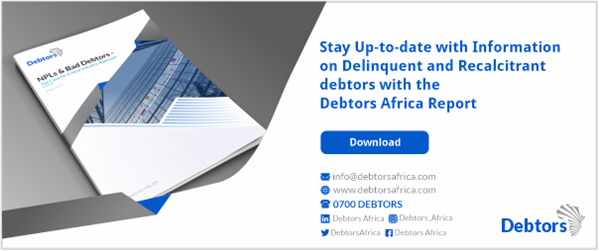
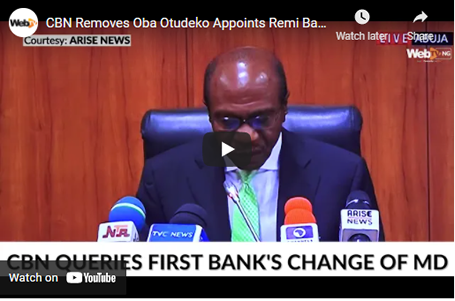




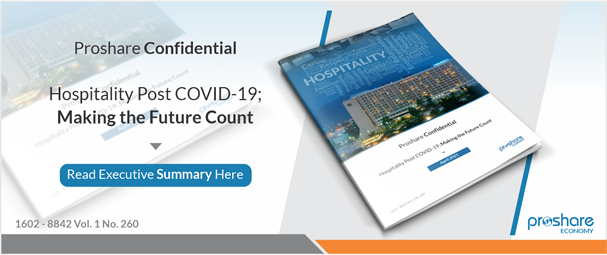
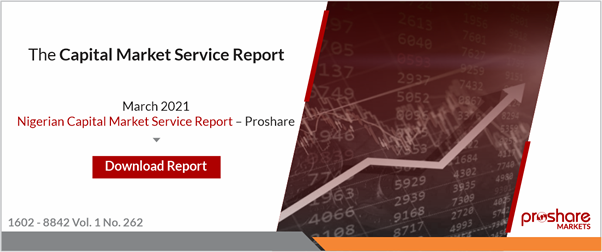





 Sponsored Ad
Sponsored Ad
 Advertise with Us
Advertise with Us









